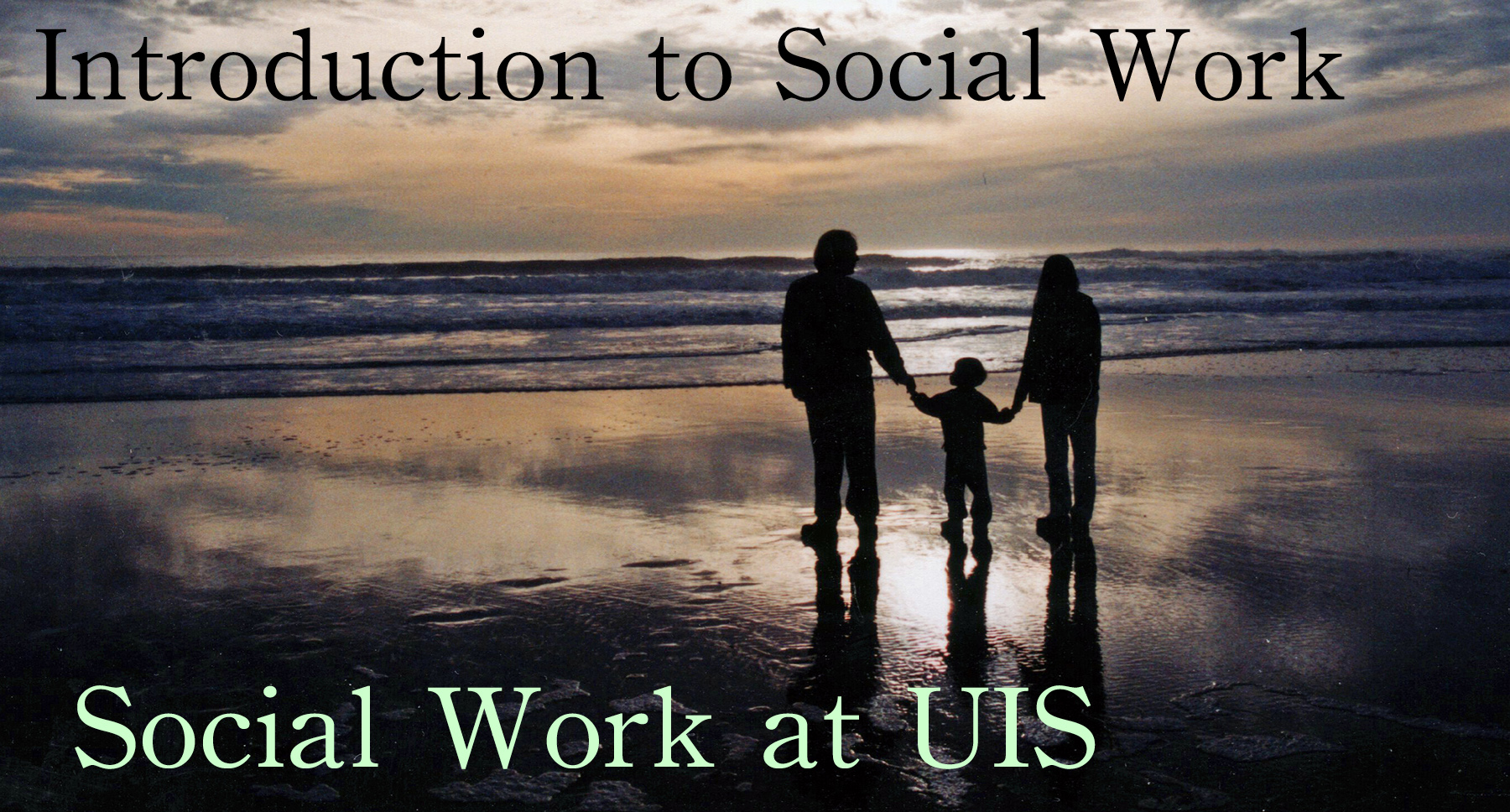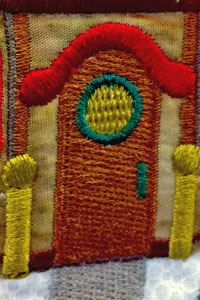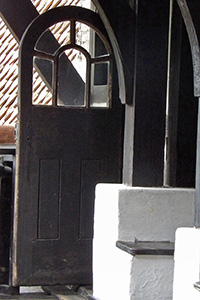Class session lasts from November 25 at 6:00 p.m. to December 2 at 5:59 p.m.
This page describes what you should do in this fourteenth session.
2h 30m Class meeting on Zoom and time reading and posting in Canvas discussion board
1h 10m Read Chapter 1 (Social Work in the ER); chapter 10 (An Inner-City High School); chapter 33 (Social Work in a Police Department); and chapter 36 (Residential Treatment for Adolescent Sexual Offenders). If you are using the 4th edition rather than the newer 5th edition, there may not be a chapter about social work in a police department, but there are no quiz questions based on that chapter.
2h Use the internet to find current articles and reports and information about your paper topic. Read about your topic.
2h 20m Reading chapters 13 through 19 (pages 99-179) in Known to Social Services
1h Do the activity where pick a social worker or historical person conncted with social work and read about who they were/are and what they did/do, and possibly read something they wrote. Prepare notes to share with the class in the next class session discussion board.
What must you read this week?
Read Chapters 13 through 19 (pages 99-179) in Known to Social Services.
Chapters If you are using Days in the Lives of Social Workers 5th edition, the assignment is to read chapters 1, 10, 33, 36, and 55. These are the chapters “Social Work in the ER” and “An Inner-City High School” and “Social Work in a Police Department” and “Residential Treatment for Adolescent Sex Offenders” and “Working with Unaccompanied Minors in Britain”. If you are using the 4th edition, these are chapters 1, 12, 35, & 53 (pages 29-37; 103-108; 257-261; 375-380).
Here are the discussion questions. You should have time to answer a few of them, and also respond to some of your classmates. Remember to devote at least an hour to the discussion board participation, even if you attended the Zoom class meeting.
- Discussion Question 1:
Check in and tell us how you are doing. What is going on in your life? What adventures have you had last week, and what are you looking forward to in the coming week? How is school going for you?
- Discussion Question 2:
What clubs or organizations are you involved with here at UIS, and what would you like to do with the student social work club?
Here are some examples of ideas social work students had for a mission statement for the student social work club. If you like, you can react to these:
We are a club of UIS students interested in social work who come together to build lasting bonds of friendship and an effective group of activists who will advocate for improved welfare policies and social services, promote social justice and human rights, and foster connections between UIS students and human service professionals. We do this with a mix of social and working events, cooperating with social workers and activists.
We are a club of social work students interested in gaining knowledge about working in the field and making connections with future allies.
The social work club will consist of members who are currently enrolled at the University of Illinois--Springfield. The club will serve to form partnerships with the campus and community, raising awareness about social issues in the world, as well as completing community service hours on the UIS Campus and/or the outside community.
The Social Work Student Club is an organization led by UIS students that is working towards gaining knowledge, building network, leading engagement, and creating events to welcome more people willing to build a community of lasting bonds and friendships.
We are a social work organization at UIS that thrives to create meaningful, strong bond with others, as well as gain knowledge to connect with community organizations at a deeper level.
We are a club of UIS students with an interest in social work who will work together to better the UIS & Springfield communities while also creating a flourishing network of contacts for students.
We represent a driven group of UIS (social work) students. We have had the idea of creating an environment filled with activities and discussions based on social justice topics. This group should strengthen the knowledge of the UIS students seeking a BSW.
The social work club is formed by a group of UIS students with a passion for social work and connecting with the community and agencies providing social work services, with the disposition of providing services to community members and students.
Currently enrolled at the University of Illinois-Springfield, we are a club of social work students who are trying to create partnerships with this campus, as well as community organizations. The club would build a network to gain knowledge, in an attempt to attract more people for events. This would be a great opportunity to not only create lasting friendships, but to increase participation in community activities
-
Discussion Question 3:
Diane Foster is the protagonist in Known to Social Services. There are some ways in which she is a heroic figure, facing impossible tasks and daunting odds, and yet persevering in the face of the challenges and nearly hopeless situation she finds herself in. There are other ways in which she represents a tragic figure, undermined by character traits that may eventually doom her to unhappiness or worse. Let's talk about one of the heroic features she has, and then one of the flaws or weaknesses she exhibits. By the end of the second week you will have read about two-thirds of the Known to Social Services novel, and have some sense of Diane Foster's character, including her strengths and weaknesses. Please share your observations here and discuss the observations of your classmates.
- Discussion Question 4:
A social worker must strike a balance. As lives (or at least the quality of lives) depend on our professional competency, our ethics, and our dedication and work effort, we are pulled to give much of ourselves to our work. Diane Foster is an experienced, efficient, hard-working, competent, and ethical social worker, and she is pulled toward the extreme of giving all she has to her work.
Yet, in order to sustain our efforts, bring value to our work, keep ourselves healthy, and avoid burn-out or overwhelming frustration, we must also step back from our work, take time to cultivate our personal development and enjoy our personal lives, and give of ourselves to friends and family who are not our clients. Consider the example of Diane Foster as presented in Known to Social Services, and look at the personal life she has and how she removes herself from the stress of her highly engaging work. What outlets does she have for personal cultivation, a private life outside her work, and time to build up herself and increase her energy and wisdom when she is not working?
Now, consider yourself. You have responsibilities to learn things as you study at UIS, but you may also have responsibilities to care for family members, and/or work to earn money (we usually have at least one student in every cohort who is working over 20 hours per week for pay and caring for children or parents while studying at UIS). What do you do to achieve balance with your responsibilities, and how will you cultivate yourself, recharge yourself, relax, and develop your personality when you face career demands (such as being a social worker, potentially)?
-
Discussion Question 5:
Typically in the second session of the course (or the third, sometimes), the class receives a brief lecture on the history of social work and some famous social workers. The presentation is available online (Links to an external site.) for you to view. Review the twelve social workers outlined in the presentation, and pick one of them or any other social worker living or historical. Then, see what you can find out online about that social worker you picked (maybe research them for 20-40 minutes, going beyond the Wikipedia article, please). If you pick a living social worker whom you know, just engage them in a conversation about their career and what they do. Ideally, if your person-of-interest is famous, you can find a book they wrote or find some article they authored online or in the library, and glance at that, seeing if you can find a quotation or observation worth noting. Having spent some time reviewing this person, share what you learned about them, and also give us your feelings about this person.
-
Discussion Question 6:
In the second session (and sometimes in the the third), we review the history of social work and some important social workers. It is often the case that many students in the class have never heard of any of the social workers highlighted in the presentation of our profession's history. We often talk about how history is taught. The professor usually presents a thesis that a functioning democracy requires us to train our young people to understand the movements that have improved or advanced our civilization. We ought to stress the work of common people and community leaders who struggled to end slavery, win the enfranchisement of women, end exploitive child labor, secure a basic social welfare safety net, and eliminate legal discrimination against non-European-Americans.
While we do have a national holiday recognizing one of the activists for the civil rights movement, the fact is, most American history is taught with highlights on presidents, political parties, wars, famous leaders, and persons who had wealth and power. Likewise, our popular culture focuses on entertainers and athletes and some politicians and capitalists, rather than intellectuals, activists, scientists, and persons working to make the world a better place. Why do you think this is? Is there something in human nature that finds this approach to history and popular culture more engaging? Why are history textbooks and civics courses so underwhelming in most American schools? Why haven't you heard of many of the twelve great social workers presented in this class? What is creating and sustaining the system we have now, where children and youth know so little about people like these?
People who use class analysis (including Marxists) offer one insight: they claim that history books, school curricula, standardized tests, and mass media are written, designed, or approved by people who are of the same class (or who aspire to be of the same class) as those presidents, generals, owners of corporations, industrialists, politicians, and so forth. The people who create the dominant cultural narratives and education system have an interest in perpetuating a certain way of understanding history and heritage, and a particular emphasis on aspects of life that legitimize their positions in the power structure or social hierarchy. There are of course many other explanations, and some may be better than what radical class analysis offers us. What explanations do you suppose are helpful in understanding this ignorance of "the movements that made a difference?"
-
Discussion Question 7:
Back in the first session, you had an assignment to spend about half-an-hour looking into the question of what we mean by "a profession" and defining the term "profession" for yourself. In this thread, please share your thoughts on the defining features of a profession, and tell us about how social work is (or is not) a real profession. Some questions you might address include:
In what ways can modern professions be compared to the old guilds of medieval Europe?
What are some of the arguments against the institution of professions and the large number of occupations that require licensure and credentialing? (Libertarian sources may be helpful if you want to explore this topic).
Are there any occupations that claim to be professions when they probably are not?
Is there any sort of hierarchy of professions with some professions being "more professional" than others?
Why is it that "professional dress" and "looking professional" is associated with the idea of "professions" when there is usually no obvious direct correspondence between definitions of profession and standards of sartorial attire?
Where does the humor come from in the wry observation (made as a clichéd quip) that sex workers are engaged in the "oldest profession"?
-
Discussion Question 8:
Back in the first session you were to look up jobs for social workers and learn about salaries for social workers. Share what you found here, and react to what you learned. What sort of income do you think you might need to live the sort of lifestyle you would find pleasant? Money, like health, is a very special thing inasmuch as more always seems better, but at some level of good health or good economic conditions any modest improvements offer only trivial increases in satisfaction or well-being. Try to estimate the levels of income where you would be somewhat satisfied, well-satisfied, quite content, and so forth. Does it look like you could have a decent material life as a social worker? What about other benefits of social work, such as the sense that your work is meaningful? Consider the trade-offs between non-monetary rewards of the social work profession and the monetary rewards. What is important to you in a workplace? Autonomy in your work? Being appreciated? Being financially rewarded? Having good relationships with co-workers? Knowing your work is meaningful? Having power to get things done? Being respected for your skill and expertise? Consider what you want out of your career, as you contemplate the idea of being a social worker.
















